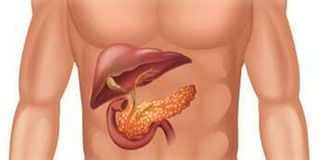Early diagnosis of pancreatic cancer on the way, shows study

What you need to know:
- Pancreatic cancer, also known as pancreatic ductal adenocarcinoma, is normally harder to treat and also highly advanced by the time it is discovered.
- This is because it does not often cause symptoms during its initial stages.
Doctors could soon be able to make early diagnosis of pancreatic cancer by conducting stool tests, scientists now say.
A new research conducted by Spain-based medics has indicated that early presence of pancreatic tumours could be detected by observing changes in the faecal matter. To come up with the findings, the researchers investigated a total of 136 patients from two hospitals in Barcelona and Madrid, who volunteered for the survey. Among the participants, only some had pancreatic ductal adenocarcinoma while the rest served as controls to allow for comparison.
Excreta and saliva samples were collected from the patients, which were further analysed to reveal any distinctions.
A blank was found in the spit samples while the ones for the stool indicated a significant distinction as shown by the research findings published in the Journal Gut. The researchers performed a genomic profiling of microbes found in the gut such as bacteria and fungi and got a consistent pattern that singled out ailing individuals the extent of how far the malady had spread notwithstanding.
According to the researchers, particular microbial indicators show up at the initial stages and could be picked early on by stool microbiomes.
The researchers believe that the latest outcome could help in pancreatic cancer diagnosis. While some studies are already underway, scientists have recommended for more research.
Tests are already being conducted in Japan while a team of German-based researchers have corroborated the findings in a small group of patients.
Pancreatic cancer, also known as pancreatic ductal adenocarcinoma, is normally harder to treat and also highly advanced by the time it is discovered.
This is because it does not often cause symptoms during its initial stages.
It may exhibit some indeterminate symptoms as the cancer continues to grow such as funny back or tummy pains, changes in bowel habits as well as indigestion. To some people, it could even take several visits to their doctors before they are finally diagnosed with pancreatic ductal adenocarcinoma.
It is a notorious deadly malady with research showing that only a small percentage of the patients survive it over the years. At the moment, in every group of 20 pancreatic ductal adenocarcinoma patients, it is only zero to one person who will survive for up to five years or more.
The latest research could greatly boost efforts to combat the lethal malady by enabling early detection and diagnosis.



